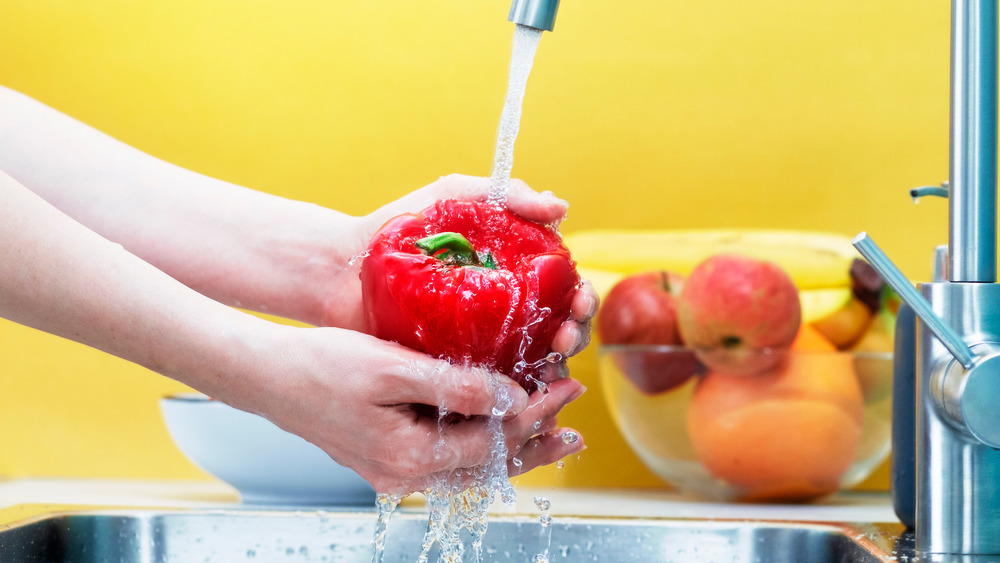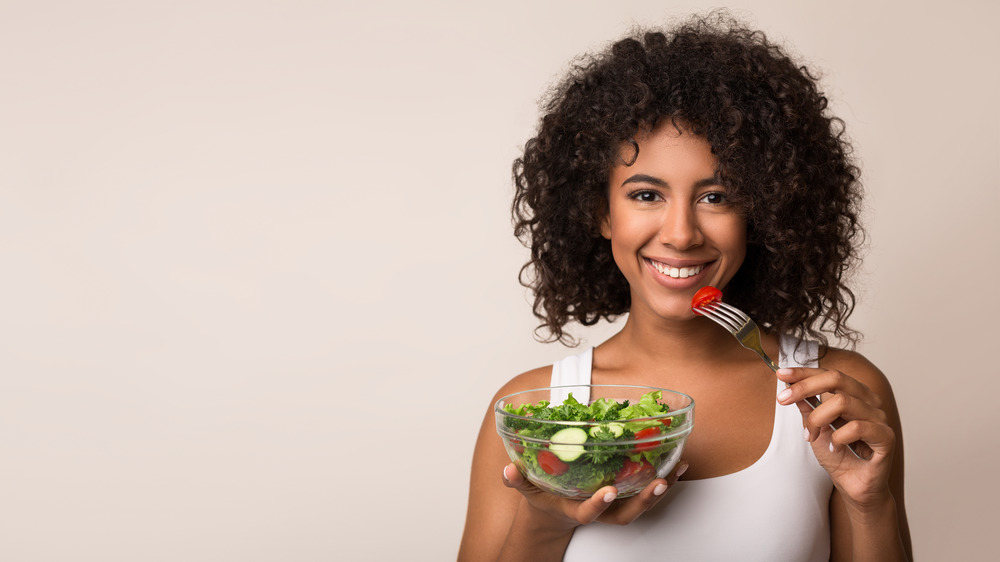Is It Safe To Eat Fruits And Vegetables Without Washing Them?
If you're one of those people who like to sneak a grape or blueberry at the grocery store before filling your bag, just to make sure it's ripe and sweet, here's another reason why you shouldn't — you might be eating some nasty, potentially dangerous particles along with the unwashed fruit.
There are four excellent reasons why you should always wash produce before eating it or cooking with it: bugs, dirt, bacteria, and pesticides. Even those who aren't gardeners are aware that the package of celery they're holding was actually grown in soil. Some of those soil particles are likely to remain after harvesting, along with a few tiny critters that came along for the ride. If they're not washed off, eating insects, worms, or soil particles won't necessarily make you sick, but will probably contribute a pretty gritty, unappetizing bite to dinner.
A bigger problem is the very real possibility that pathogenic bacteria could be living on the surface of your lettuce or bell peppers. Aside from bacteria that are naturally occurring in the soil, there are many other opportunities for fruits and veggies to become contaminated. Even if it looks perfectly clean, it probably isn't. Philip Tierno, Ph.D., a clinical professor of microbiology and pathology at NYU Langone Medical Center, told SELF, "There's a whole host of people that handle raw fruits and vegetables, including the growers, the pickers, the truckers — many hands which contain different types of germs, potentially pathogens."
Wash your produce to remove possible pathogens
Another concern is pesticide residue on the surface of most produce. According to Elizabeth Girouard, certified holistic health coach and founder of Zing Meals, a gourmet meals business (via Reader's Digest), "Most produce is sprayed with herbicides and pesticides to keep the bugs away. Some of the residual pesticides that remain on the outside of the produce can be washed away with water, or a mixture of water and baking soda or vinegar. Many pesticides can be harmful if ingested in large quantities, so washing helps to remove the surface chemicals."
Washing is important even when the produce is organic. Certain pesticides, herbicides and fungicides that are approved for use on organic farms, like copper sulfate (a fungicide), can still be dangerous if consumed in large quantities (via Organic Authority). And, organic or not, no produce is exempt from the possibility of bacterial contamination. So, go ahead and wash your produce, no matter where it came from.


